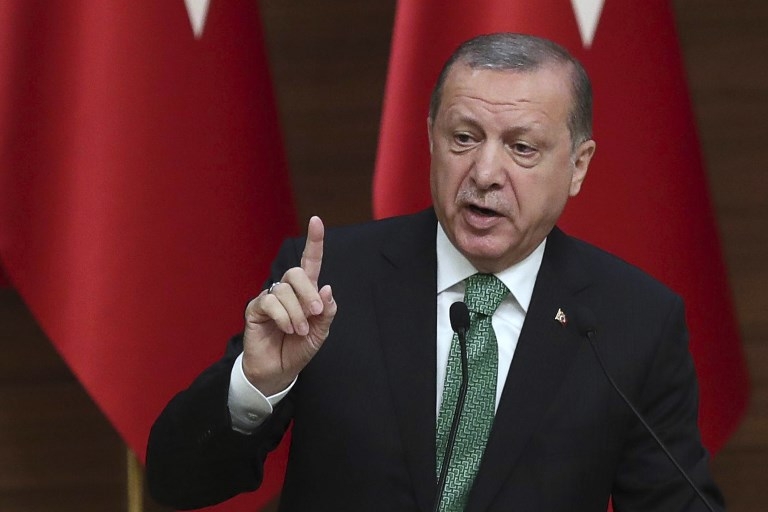Turkey dismisses hundreds of civil servants in latest decrees

Turkey has dismissed over 900 public sector officials in the latest wave of the purge that has followed last year's failed coup, according to an emergency decree published in the official gazette on Friday.
Over 140,000 people have been sacked or suspended from their jobs since July 2016 over alleged links to US-based Islamic cleric Fethullah Gulen, accused of ordering the attempted coup. Gulen denies the charges.
More than 50,000 people including journalists have been arrested under the state of emergency imposed last year in a crackdown that has caused international concern.
A total of 928 people were sacked in the latest decree, including civil servants working in the defence, foreign and interior ministries as well as military personnel. Those sacked included more than 100 academic personnel.
Turkish authorities also stripped 10 retired brigadier generals of their rank, according to the decree. Turkey will also recruit 32,000 staff for the police, along with 4,000 judges and prosecutors.
But the decree said 57 civil servants and military personnel returned to their jobs including 28 officials from the justice ministry and related institutions.
Six organisations including three media outlets in the southeast were shut down including Dicle Media News Agency based in the Kurdish-majority city of Diyarbakir.
Dozens of media outlets including newspapers and broadcasters have been closed down since July.
A second decree tied Turkey's National Intelligence Organisation (MIT) to the president - previously linked to the prime ministry - while the presidency would head a new body called the National Intelligence Coordination Board (MIKK).
President Recep Tayyip Erdogan's authorisation would be needed for the MIT head to be investigated, according to the decree.
The president would also need to approve any request made for the MIT chief, currently Hakan Fidan, to act as a witness in court.
The move appears to be part of the measures taken to implement changes approved in the April referendum on expanding Erdogan's powers to create an executive presidency.
Most of the reform measures are due to come into effect after the 2019 presidential and parliamentary elections.
Critics have accused the government of using the state of emergency to crack down on all forms of opposition. But Turkish authorities insist that it is necessary to ensure Turkey's security from multiple threats it faces from Gulen and Kurdish militants.
Some 250 people were killed in last year's coup attempt, and the government has said the security measures are necessary because of the gravity of the threats facing Turkey. Gulen has condemned the coup attempt and denied involvement.
Stay informed with MEE's newsletters
Sign up to get the latest alerts, insights and analysis, starting with Turkey Unpacked
Middle East Eye delivers independent and unrivalled coverage and analysis of the Middle East, North Africa and beyond. To learn more about republishing this content and the associated fees, please fill out this form. More about MEE can be found here.





